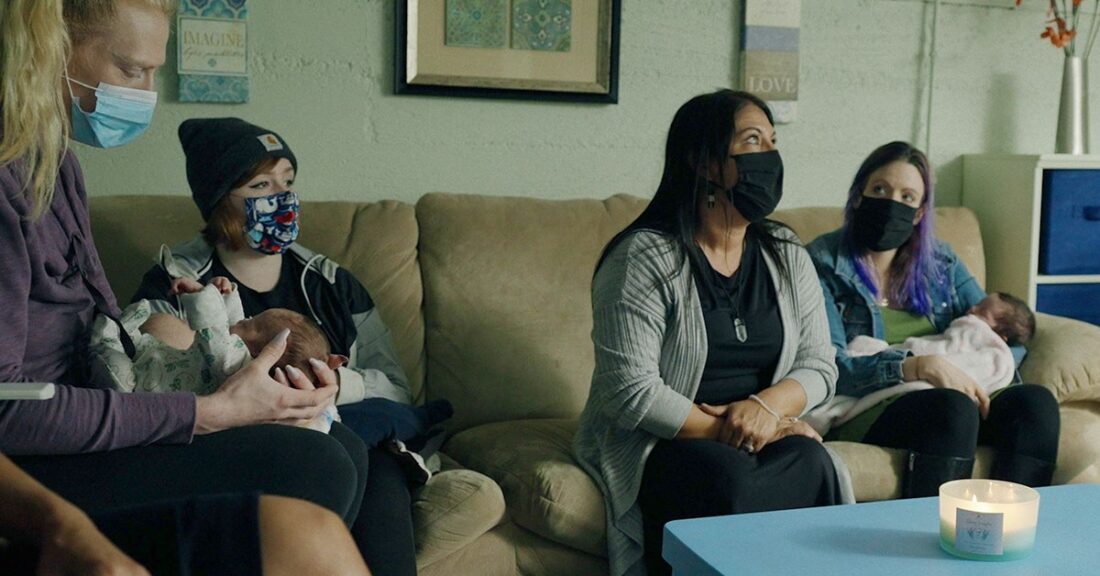Documentary Inspires Empathy for Families in Recovery

In the new documentary film “Being Gina,” parent advocate Gina Wassemiller shares her story of healing from substance abuse and family separation. Follow her through a typical day as she reflects on her past and rebuilds relationships.
At work, Wassemiller inspires and encourages mothers on similar journeys, cradling their infants as she counsels them. Wassemiller is a parent ally at F.I.R.S.T. Legal Clinic (Family Intervention Response to Stop Trauma) in Washington state, which provides services for new mothers experiencing substance abuse challenges. Its staff works to prevent removal of their children by child protective services.
“Being Gina” is the first in a series of Institute for Family documentaries focused on the important role of communities of support in unlocking family potential. A grantee of the Annie E. Casey Foundation, the institute is hopeful that networks of child welfare professionals and advocates will view the film and consider ways they can support mothers and families in their own communities. Available with the short video are prompts and questions to help viewers discuss themes from Gina’s story.
A longer, complementary version of the documentary premiered at the 2021 Hot Springs Film Festival under the title “Parent Ally.” Distribution plans are not yet firm. The film was directed by Radha Mehta and produced by Mehta, the Institute for Family and Paige Williams.
One goal of the series is to tell stories that cultivate empathy and compassion for families in the child welfare system. The director showcases Wassemiller’s personal strength and her determination to keep infants and mothers together. By changing the public’s views of families who need support, the Institute for Family seeks to build public and political will to design policies and practices that result in better conditions for children and families.
“At the Institute for Family, we’re intentionally putting stories out there that replace toxic narratives with the view that the circumstances families become involved in are more about societal conditions than ‘bad choices,’” said Matt Anderson, director of Institute for Family and vice president for programs and business development with the Children’s Home Society of North Carolina. “I think the vast majority of families love and want the best for their children. We just need to create the environments where families have what they need to unlock their potential.”





